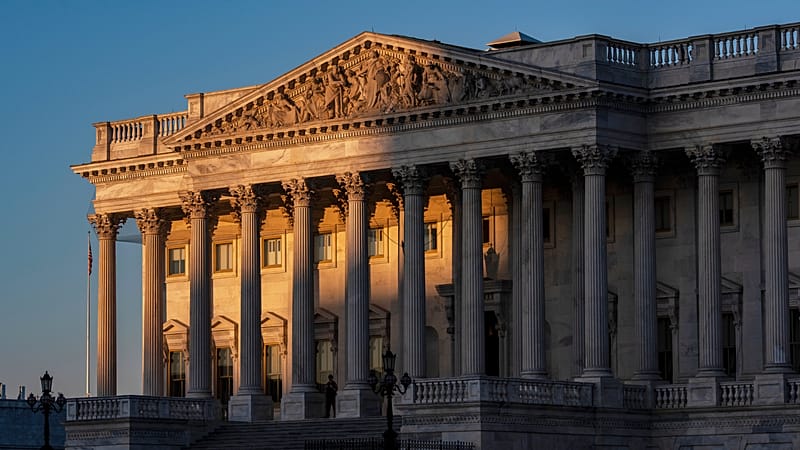US Senate takes first step toward ending government shutdown

The US Senate took the first step to end the longest-ever government shutdown on Sunday, after a group of moderate Democratic lawmakers agreed to proceed without a guaranteed extension of health care subsidies.
In a test vote that is the first in a series of required procedural manoeuvres, the Senate voted 60-40 to move toward passing compromise legislation to fund the government, angering many Democrats who say Americans want them to continue the fight.
The agreement involves holding a later vote on extending Affordable Care Act tax credits that expire on 1 January. Final passage could be several days away if Democrats object and delay the process.
The agreement does not guarantee the health care subsidies will be extended, as Democrats have demanded for almost six weeks. Senate Democratic leader Chuck Schumer of New York voted against moving ahead with the package, along with all but eight of his Democratic colleagues.
The agreement also includes a reversal of the mass firings of federal workers by the Trump administration since the shutdown began on 1 October and would ensure that federal workers receive back pay.
Senate Majority Leader John Thune quickly endorsed the deal and called an immediate vote to begin the process of approving it as the shutdown continued to disrupt flights nationwide, threaten food assistance for millions of Americans and leave federal workers without pay.
“The time to act is now,” Thune said.
Returning to the White House on Sunday evening after attending a football game, US President Donald Trump did not say whether he endorsed the deal. But he said, “It looks like we’re getting close to the shutdown ending.”
House Democrats criticise Senate
A group of three former governors — Jeanne Shaheen, Maggie Hassan and Angus King — broke the six-week stalemate on Sunday when they agreed to vote to advance three bipartisan annual spending bills and extend the rest of government funding until late January in exchange for a mid-December vote on extending the health care tax credits.
In addition, Senators Tim Kaine, Dick Durbin, John Fetterman, Catherine Cortez Masto and Jacky Rosen also voted yes.
The moderates had expected a larger number of Democrats to vote with them, as 10-12 Democratic senators had been part of the negotiations. But in the end, only five Democrats switched their votes — the exact number that Republicans needed.
House Democrats swiftly criticised the Senate.
Greg Casar, the chairman of the Congressional Progressive Caucus, said a deal that doesn't reduce health care costs is a “betrayal” of millions of Americans who are counting on Democrats to fight.
“Accepting nothing but a pinky promise from Republicans isn’t a compromise — it’s capitulation,” Casar said in a post on X. "Millions of families would pay the price.”
Angie Craig of Minnesota posted that “if people believe this is a ‘deal,’ I have a bridge to sell you.”
House Democratic leader Hakeem Jeffries said Democrats will continue to fight.
“Donald Trump and the Republican Party own the toxic mess they have created in our country and the American people know it,” Jeffries said.
It is unclear whether the two parties can find common ground on health care subsidies before a promised December vote in the Senate. Republican House Speaker Mike Johnson has said he will not commit to bringing it up in his chamber.
Some Republicans have said they are open to extending the COVID-19-era tax credits as premiums could skyrocket for millions of people. However, they also want new limits on who can receive the subsidies and argue that the tax dollars for the plans should be routed through individuals.
Other Republicans, including Trump, have used the debate to renew their years-long criticism of the law and called for it to be scrapped or overhauled.

